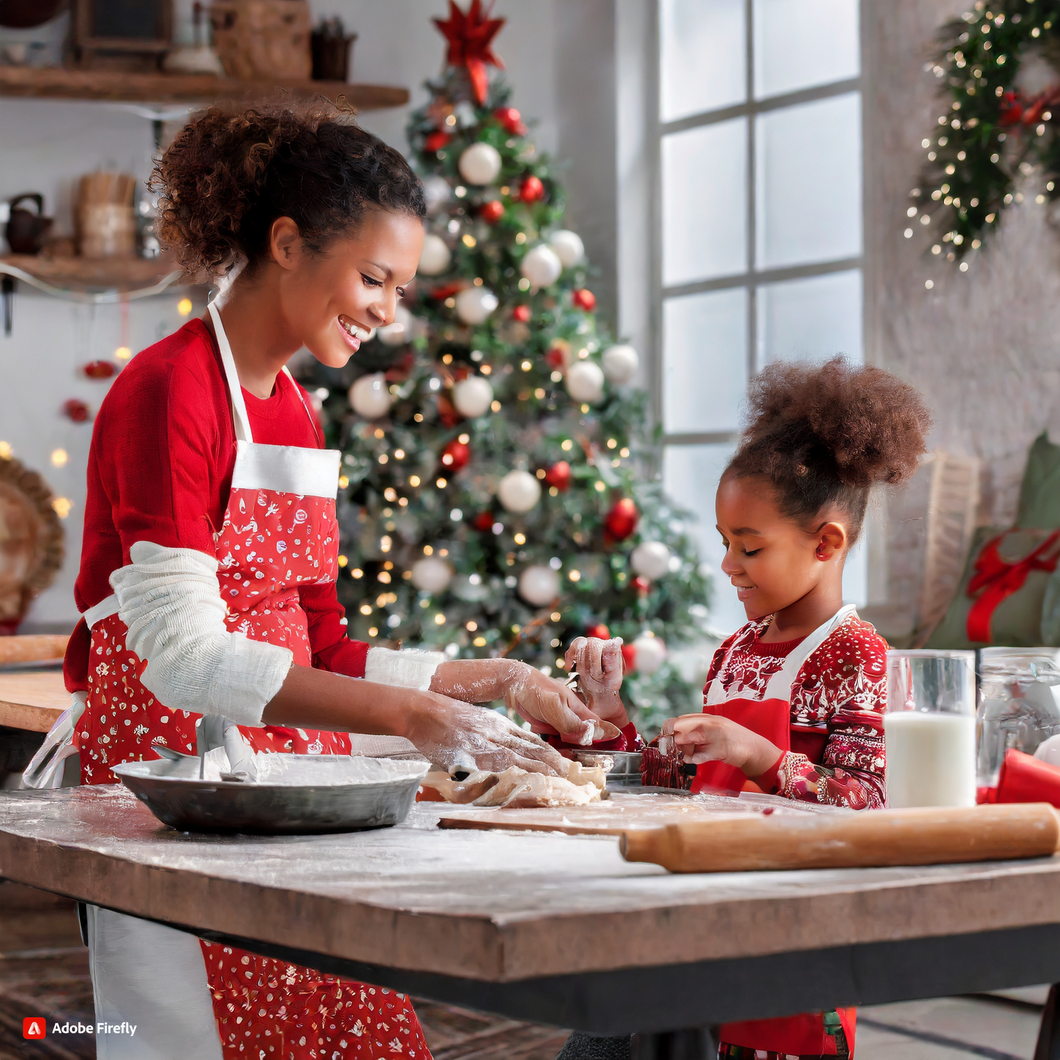Introduction
Global Festive Fusion is a celebration of the diverse and unique Christmas Traditions that are observed across continents. This event brings together people from different cultures and backgrounds to share and learn about the various customs, rituals, and festivities that make Christmas a truly global holiday. From traditional practices to modern interpretations, Global Festive Fusion showcases the beauty and richness of Christmas Traditions around the world. It is a time to embrace diversity and unity, and to celebrate the spirit of Christmas in all its forms.
Unique Christmas Traditions from Around the World
Christmas is a time of celebration, joy, and traditions. It is a holiday that is celebrated all around the world, but each country has its own unique way of celebrating. From decorations to food to customs, Christmas Traditions vary greatly across continents. In this article, we will take a closer look at some of the most unique Christmas Traditions from around the world.

Let’s start our journey in Europe, where Christmas is a big deal. In Germany, the Christmas season officially begins on December 6th, with the feast of St. Nicholas. Children leave their shoes outside their doors on the night of December 5th, hoping that St. Nicholas will fill them with sweets and small gifts. Another popular tradition in Germany is the Christmas market, where people gather to shop for handmade gifts, drink mulled wine, and enjoy traditional German treats like gingerbread and roasted chestnuts.
Moving on to the United Kingdom, where Christmas is a month-long celebration. The streets are adorned with lights and decorations, and Christmas markets are a common sight. One unique tradition in the UK is the Christmas pudding, a rich and fruity dessert that is often set on fire before being served. Another interesting tradition is the Christmas cracker, a paper tube filled with small gifts, jokes, and paper hats that are pulled apart with a loud pop during Christmas dinner.
In Italy, Christmas is a religious holiday that is celebrated with great fervor. The celebrations begin on December 8th, with the Feast of the Immaculate Conception. One of the most unique traditions in Italy is the Feast of the Seven Fishes, where families gather on Christmas Eve to enjoy a meal of seven different types of fish. Another popular tradition is the Nativity scene, or Presepe, which is displayed in homes and churches throughout the country.
Moving across the Atlantic to South America, we find that Christmas is celebrated with a mix of religious and cultural traditions. In Brazil, Christmas is a time for family and friends to come together and enjoy a feast of traditional dishes like turkey, ham, and panettone. One unique tradition in Brazil is the burning of the Papai Noel, a life-size doll that represents Santa Claus. This tradition symbolizes the end of the old year and the beginning of a new one.
In Mexico, Christmas celebrations begin on December 16th with the Posadas, a nine-day celebration that reenacts Mary and Joseph’s journey to Bethlehem. Each night, a different family hosts a Posada, where guests are served traditional foods like tamales and ponche, a hot fruit punch. On Christmas Eve, families attend midnight mass and then return home to enjoy a feast of traditional dishes like bacalao, a salted cod dish.
Finally, let’s travel to Asia, where Christmas is not a widely celebrated holiday, but some countries have their own unique traditions. In Japan, Christmas is not a national holiday, but it is celebrated by some as a time for gift-giving and romantic dates. One popular tradition is to eat KFC on Christmas Eve, as it is seen as a special treat. In the Philippines, Christmas celebrations begin as early as September and continue until January. One unique tradition is the Simbang Gabi, a series of nine dawn masses that start on December 16th and end on Christmas Eve.
As we can see, Christmas Traditions vary greatly across continents, but they all share the common theme of bringing people together to celebrate and spread joy. Whether it’s enjoying a feast with loved ones, attending religious services, or participating in unique customs, Christmas is a time to embrace and appreciate different cultures and traditions. So this holiday season, let’s celebrate the diversity of our world and spread the spirit of Christmas across continents.
The Globalization of Christmas: How Different Cultures Celebrate
Christmas is a holiday that is celebrated all around the world, but have you ever wondered how different cultures and countries celebrate this festive season? With the increasing globalization and cultural exchange, Christmas Traditions have also evolved and fused with local customs, creating a unique and diverse celebration across continents. Let’s take a journey around the world and explore the global festive fusion of Christmas Traditions.
Starting with Europe, where Christmas is deeply rooted in history and tradition, each country has its own unique way of celebrating. In Germany, the Christmas markets are a popular tradition, where people gather to shop for handmade gifts, drink mulled wine, and indulge in traditional German delicacies. In Italy, the focus is on food, with a feast of seafood and pasta dishes on Christmas Eve, followed by a traditional panettone cake on Christmas Day. In France, the celebration is centered around the Nativity scene, with families setting up elaborate creches in their homes.

Moving on to Asia, where Christmas is not a traditional holiday, but has gained popularity in recent years. In Japan, Christmas is seen as a romantic holiday, with couples exchanging gifts and enjoying a romantic dinner. In South Korea, Christmas is celebrated as a couple’s holiday as well, but with a unique twist of exchanging handwritten letters instead of gifts. In India, where Christianity is a minority religion, Christmas is celebrated with a fusion of Indian and Western traditions. People decorate banana or mango trees instead of traditional Christmas trees and exchange gifts of sweets and fruits.
In Latin America, Christmas is a vibrant and colorful celebration, with a mix of Spanish and indigenous traditions. In Mexico, the celebration starts on December 16th with the Posadas, a reenactment of Mary and Joseph’s journey to Bethlehem. In Brazil, the focus is on food, with a traditional feast of turkey, ham, and rice dishes. In Puerto Rico, the celebration continues until January 6th with the Feast of the Three Kings, where children receive gifts from the Three Wise Men.
Moving to Africa, where Christmas is celebrated with a fusion of Christian and traditional African customs. In South Africa, Christmas falls during the summer season, and people celebrate with a braai (barbecue) and traditional dishes like bobotie and malva pudding. In Ethiopia, Christmas is celebrated on January 7th, and the celebration is centered around the religious festival of Ganna, with colorful processions and traditional dances.
In North America, Christmas is a widely celebrated holiday, but with slight variations in traditions. In the United States, the focus is on Santa Claus and gift-giving, with families gathering for a traditional Christmas dinner. In Canada, the celebration is similar, but with the addition of outdoor activities like ice skating and sledding. In Mexico, Christmas is celebrated with a fusion of Spanish and indigenous traditions, with the highlight being the Posadas.
Finally, in Australia and New Zealand, where Christmas falls during the summer season, the celebration is a mix of traditional and modern customs. People decorate their homes with Christmas lights and have a traditional Christmas dinner, but also enjoy outdoor activities like barbecues and beach parties. Read Healthy Dessert Recipes.
As we can see, Christmas is celebrated in various ways across continents, but the underlying theme of love, family, and togetherness remains the same. With the increasing globalization and cultural exchange, Christmas Traditions have evolved and fused with local customs, creating a unique and diverse celebration around the world. So this holiday season, let’s embrace the global festive fusion and celebrate the diversity of Christmas Traditions.
Festive Fusion: Blending Christmas Traditions Across Continents
Christmas is a time of celebration, joy, and traditions. It is a holiday that is celebrated all around the world, but each country has its own unique way of celebrating. From decorations to food, and even customs, Christmas Traditions vary greatly across continents. However, in recent years, there has been a growing trend of blending these traditions, creating a global festive fusion that brings people from different cultures together.
One of the most iconic symbols of Christmas is the Christmas tree. In many Western countries, it is a tradition to decorate a fir tree with lights, ornaments, and a star on top. However, in some Asian countries, such as Japan and China, Christmas trees are not a common sight. Instead, they have their own unique decorations, such as paper lanterns and origami ornaments. But in recent years, there has been a fusion of these traditions, with Asian countries incorporating Christmas trees into their celebrations, while still adding their own cultural touch.
Another popular Christmas tradition is gift-giving. In Western countries, it is customary to exchange gifts on Christmas day, often with a visit from Santa Claus. In some European countries, such as Germany and the Netherlands, gifts are exchanged on December 6th, the feast day of Saint Nicholas. In contrast, in many Asian countries, gift-giving is not a traditional part of Christmas. However, with the rise of globalisation and the influence of Western culture, gift-giving has become more common in these countries during the holiday season.
Food is also an important aspect of Christmas celebrations. In the United States, a traditional Christmas dinner includes roast turkey, mashed potatoes, and cranberry sauce. In the United Kingdom, a Christmas pudding is a must-have dessert. In contrast, in many Asian countries, rice dishes and noodles are a staple part of the Christmas feast. But with the fusion of cultures, people are now incorporating dishes from different countries into their Christmas meals. For example, a Christmas dinner in Japan may include a mix of traditional Japanese dishes and Western dishes, such as roast beef and sushi.
One of the most heartwarming aspects of Christmas is the spirit of giving and helping those in need. In many Western countries, it is a tradition to donate to charities and volunteer at soup kitchens during the holiday season. In some Asian countries, such as South Korea and Japan, Christmas is not a national holiday, but people still celebrate by giving back to their communities. This fusion of traditions has led to a global movement of spreading kindness and generosity during the festive season.
Music is also an integral part of Christmas celebrations. In Western countries, Christmas carols are a popular way to spread holiday cheer. In Latin American countries, traditional Christmas songs, known as villancicos, are sung during the holiday season. In Asia, K-Pop Christmas songs have become a trend in recent years. This fusion of music from different cultures has created a diverse and vibrant soundtrack for the holiday season. Read Recipes for Special Occasions.
In conclusion, Christmas Traditions may vary across continents, but the spirit of the holiday remains the same – to spread love, joy, and kindness. With the fusion of these traditions, people from different cultures are coming together to celebrate this special time of year. It is a beautiful reminder that despite our differences, we can all come together and create something magical. So this holiday season, let’s embrace the global festive fusion and celebrate the diversity of Christmas Traditions across continents.
Q&A
1. What is Global Festive Fusion?
Global Festive Fusion is a celebration of Christmas Traditions from different continents and cultures around the world. It aims to showcase the diversity and richness of holiday customs and bring people together in a spirit of unity and understanding.
2. How is Global Festive Fusion celebrated?
Global Festive Fusion is celebrated through various events and activities, such as cultural performances, food festivals, and art exhibitions. It also involves sharing and learning about different holiday traditions through workshops, talks, and interactive experiences.
3. Why is Global Festive Fusion important?
Global Festive Fusion is important because it promotes cultural exchange and understanding, celebrates diversity, and fosters a sense of global community. It also allows people to learn about and appreciate different holiday traditions, creating a more inclusive and harmonious society.
Conclusion
In conclusion, Global Festive Fusion is a celebration of the diverse and unique Christmas Traditions that are practiced across continents. It highlights the beauty and richness of different cultures and how they come together to celebrate the holiday season. This event promotes cultural exchange and understanding, bringing people from different backgrounds closer together.
It also serves as a reminder that despite our differences, we all share the same spirit of joy, love, and togetherness during this special time of year. Global Festive Fusion is a wonderful opportunity to learn, appreciate, and celebrate the diversity of Christmas Traditions around the world.
Please follow us on linkedin. You can learn all best canadian food recipes you can check our Culinary 1TouchFood Youtube and Telegram 1TouchFood page. Don’t forget Fighting Obesity Magazine and Radio Cooking.

